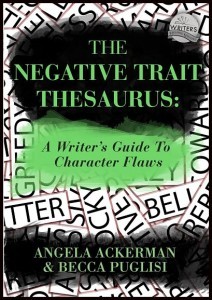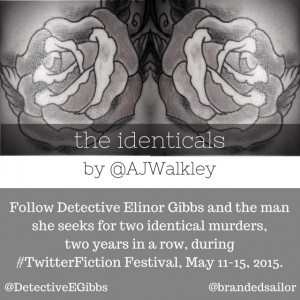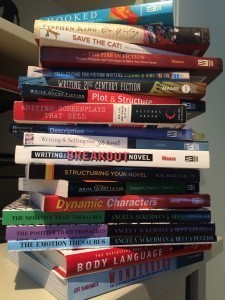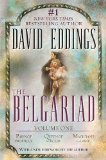Angela Ackerman's Blog: Writers Helping Writers, page 147
May 13, 2015
How To Uncover Your Character’s Emotional Wound
To build a compelling character (and write them convincingly) we want to make them real as possible, and that means developing a backstory that lets us understand them on a deeper level. This brainstorming time allows us create their unique personality by seeing how the people and events of their past helped to shape them. Knowing who and what influenced a character gives us insight into what they might fear, desire, and need most of all. With these key pieces of information, we will know what motivates them, which in turn dictates their reactions, responses and behaviors in the story.
Even in real life, we have a backstory. Our pasts are filled with experiences, both good and bad, which helped teach us who to trust, what to believe in, and what to avoid. The more defining the experience or event, the deeper (and sometimes more painful) the lesson. This is all part of the human experience, and for us to create characters who feel realistic, we must try to mirror real life as much as possible as we plan and write.
 Of all the experiences in a character’s past, none is more trans-formative than one that wounds them emotionally.
Of all the experiences in a character’s past, none is more trans-formative than one that wounds them emotionally.Wounds are painful moments. A person is completely vulnerable, their emotions laid bare. And whatever the situation or event, the outcome is traumatic enough to change them on a deep, emotional level. Losing a loved one, suffering a humiliation at work, or simply having a parent’s love be withdrawn whenever one does not live up to impossibly high standards…whatever the wound, fear springs into being that one will suffer the same emotional pain if the character does not do something to prevent it.
This fear breeds flaws, negative personality aspects that act as emotional armor, keeping people (and thus more wounding experiences) at a distance. And while flaws appear to “help” by safeguarding one’s emotions, in reality they only do harm, inhibiting growth and damaging relationships. The Fatal Flaw especially has a key role in Character Arc, which the character must recognize and overcome if he is to achieve the growth needed to move past his wounds and obtain his goals. (If he doesn’t change, the flaw becomes a tragic flaw, and the story ends in tragedy.)
Clearly wounds are important. Choosing the right one for your character will help set the trajectory for your story, and crystallize the fear that holds him back. So how do we go about brainstorming this wounding event or situation, especially if you haven’t firmly decided what the story is about yet? Here are a few ideas:
UNDERSTAND HIS FEARS
Make a list of the things your character fears or worries about—small things or big things. His greatest fear, the one that he would never admit to having, is the key. Sometimes though, this fear likes to hide, and we need to dig deep. Pretend you are shadowing him for a day. Imagine what situations he avoids, and why. Think about the type of people he doesn’t like to be around. What sort of relationships is he comfortable with, and which ones bring him stress? What scenarios cause him to be emotionally volatile, and if they escalate, bring out the “fight or flight” reaction? What secrets does he keep? Watch him, observe him, and see what emotions he avoids all together, or is very uncomfortable feeling. These all hide clues to what unsettles him, and beneath that, what makes him feel vulnerable to the core.
UNDERSTAND HIS GREATEST NEED
 Two things motivate people more than anything else—fear and need. Needs are especially powerful, and if pushed, can cause a person to face down fear in order to satisfy a need. Basic Human Needs according to Maslow fall into five categories, giving us writers a terrific guide to determining what needs are not being filled.
Two things motivate people more than anything else—fear and need. Needs are especially powerful, and if pushed, can cause a person to face down fear in order to satisfy a need. Basic Human Needs according to Maslow fall into five categories, giving us writers a terrific guide to determining what needs are not being filled.
In real life, when an important need isn’t being met, sooner or later we instinctively maneuver to fill that need. So think about what is missing from your character’s life at the start of the story. What area of his life feels lacking or empty? How is he dissatisfied? Or alternatively, some stories start out where the Hero has everything until he hits the POT HOLE OF DOOM in your opening which throws his life into chaos. At that point, an important need is stripped away, and the hero must claw and bite and scratch to get it back by the end of the story.
Look over the Basic Human Needs structure. Think about which category might have a void in your character’s life. Once you determine the need that is missing, you can plan an event that “represents” the emotional heartache of having this very thing and then losing it. This will instill the fear the character has of meeting the need initially, leaving him believing he is fine without it. Think of a man who loses his wife to violence. Love and Belonging is what he lacks, but the fear and pain of loving and losing is strong enough to keep him from wanting to love again. Eventually though, an intense need will reach a critical point where it becomes a “missing limb,” always itching and throbbing, until the person yearns to be complete.
CHOOSE THE RIGHT THEME
There are many types of wounds, some big and some small. The wound in your character’s past may be a single experience, or exposure to an ongoing situation that left him changed or disillusioned. Here is a list of 7 Common Themes for Wounds. Have a poke around this list to see if there is a theme that your gut tells you is your character’s hot button.
 I hope this offers some ideas on choosing a wounding event or situation that will act as a symbol for what he must work through to fulfill the universal human need to grow. The Negative Trait Thesaurus also explores Emotional Wounds in greater depth.
I hope this offers some ideas on choosing a wounding event or situation that will act as a symbol for what he must work through to fulfill the universal human need to grow. The Negative Trait Thesaurus also explores Emotional Wounds in greater depth.
HEADS UP!
We are exploring Emotional Wounds in Thesaurus form starting this Saturday, so make sure to stop in for more help!
Image 1: cocoparisienne @ Pixabay
Image 2: wikapedia commons
The post How To Uncover Your Character’s Emotional Wound appeared first on WRITERS HELPING WRITERS™.
May 12, 2015
Using Twitter to Gain Exposure as a Writer
Hi everyone, today we have A.J. Walkley with us, offering a window into how Twitter can help writers with exposure. We all know that as more choose writing as a career path, finding ways to become better known on the other side of the keyboard is something we all need to think about. A.J. has had some great success doing this, and is here to show us how.  No matter what type of writer you are – a fledgling just starting out; self-published; indie published; repped or unrepped; or those who’ve beaten the odds and stepped over the line into traditional publishing – you know just how important exposure to the industry is to find success. Without taking a leap, risking your pride, and putting your writing out there, you can never get to that next rung on the ladder. Fortunately for us all, there are a multitude of opportunities to get that needed exposure today; all you need to do is sign online for many of them to open up to you. One area alone with many chances to take advantage of is the fast-moving social media platform of Twitter.
No matter what type of writer you are – a fledgling just starting out; self-published; indie published; repped or unrepped; or those who’ve beaten the odds and stepped over the line into traditional publishing – you know just how important exposure to the industry is to find success. Without taking a leap, risking your pride, and putting your writing out there, you can never get to that next rung on the ladder. Fortunately for us all, there are a multitude of opportunities to get that needed exposure today; all you need to do is sign online for many of them to open up to you. One area alone with many chances to take advantage of is the fast-moving social media platform of Twitter.
Fiction contests are popular across Twitter and allow authors to hatch new ideas seen by the most influential agents and editors out there, without all the stress of a query letter. I first heard about #TwitterFiction Festival, for one, a few months ago when my literary agency posted about a contest related to the event. Writers of all calibers have the opportunity to submit a fiction idea that can be written in tweet-form. Along with 20-25 bestselling authors who are featured during the five-day virtual writing festival annually, 20-25 lesser known writers are chosen as well.
I decided to enter the challenge with a crime novel idea that had been percolating in my mind for the better part of a year. An esteemed panel of judges from across the industry, including editors from some of the biggest publishing houses, would be critiquing submissions. But in the overwhelming flood of entries that pour through news feeds in contests like this, how could I stand out from the crowd? How could I be noticed?
I decided a fiction story told on Twitter just wasn’t enough. So I shaped the story to be told from two Twitter accounts – a detective and a killer – and included multimedia aspects like photos, fake news clippings, and video footage. It must have stood out: I received a congratulatory email at the beginning of April saying I’d made it into the final round of submissions. I am one of 22 featured authors chosen to showcase my idea in specific time slots with many in the publishing industry watching.
#TwitterFiction Festival is a tremendous opportunity for writers for several reasons, the first being the eyes you get your writing in front of from the get-go. A panel of judges from across the publishing industry choose the official participants; 2015 saw judges from Quirk Books; Little, Brown and Company; Avon Books, HarperCollins; Simon & Schuster; Hachette Book Group; Grove Atlantic; Penguin Random House; and St. Martin’s Press. On top of those esteemed entities, this year, for the second year in a row, the Association of American Publishers and Penguin Random House are presenting the event.
A contest like this forces authors to stretch the limits of their creativity, too. I had never tried to parse a novel or storyline into 140 characters before. Including visuals in both photo and video form, along with my words, was an even greater challenge, and my “book” has certainly benefited from it.
While I was one of the chosen featured authors, anyone on Twitter can craft and Tweet short fiction using #twitterfiction throughout the festival. It’s a fantastic way to showcase wild and exciting stories in a format that’s rarely been seen before. The only limit is your creativity.
This particular writing opportunity is not the only Twitter-based contest out there, either. You’ve probably heard of #PitMad (Pitch Madness), where authors craft a 140-character pitch to agents and editors for the chance to gain a full manuscript request. The Women’s Fiction Writing Association has another contest using the hashtag #WFPitch. #SFFPitch is a great contest for showcasing science fiction and fantasy ideas. You can also always find an abundance of agents tweeting under the hashtag #AskAgent if you’re trying to learn what agents do and do not want to see.
The best part about these contests is that, even though each may only list a few featured judges, you can be guaranteed there are hundreds of eyes from the publishing industry refreshing their Twitter feeds throughout the day in hopes of finding your next amazing idea and requesting to read.
 Join me on Twitter Tuesday, May 12th from 2am-3am EST (you bring the coffee, I’ll bring the entertainment!) and Friday, May 15th from 9pm-10pm EST for my two featured time slots where I’ll be presenting my new crime novel, the identicals, and see what the festival is all about.
Join me on Twitter Tuesday, May 12th from 2am-3am EST (you bring the coffee, I’ll bring the entertainment!) and Friday, May 15th from 9pm-10pm EST for my two featured time slots where I’ll be presenting my new crime novel, the identicals, and see what the festival is all about.
I’ll be tweeting from @DetectiveEGibbs and @brandedailor, and retweeting from my personal account, @ajwalkley, as the story unfolds May 11-15, 2015.
Thank you so much to Angela Ackerman for the opportunity to contribute to Writers Helping Writers! If you’re planning to participate and share your own #twitterfiction throughout the festival, please let me know on Twitter so I can watch your story unfold, too!
Subscribe to A.J. Walkley’s Twitter list and follow her #TwitterFiction crime story with ease: https://twitter.com/AJWalkley/lists/the-identicals1
A.J. Walkley on Twitter: https://twitter.com/AJWalkley
Website: http://ajwalkley.com/
Will you be watching #TwitterFiction unfold, or have you participated in #PitMad or another Twitter contest? Tell me about your experience in the comments!
PSSST! Don’t forget, we’ll be putting up our first entry for the Emotional Wound Thesaurus this Saturday. See you then!
The post Using Twitter to Gain Exposure as a Writer appeared first on WRITERS HELPING WRITERS™.
May 9, 2015
Announcing…The Emotional Wounds Thesaurus!
Just like real people, our characters have a plethora of past experiences that play a part in molding who they become. While these experiences, good and bad, affect their personalities, it is often the harrowing ones that have the most impact.
 An emotional wound is a negative event from the character’s past that causes a hurt deep enough to change who he or she is. It might be a single experience (discovering a spouse’s infidelity), a longer term situation (being so poor one often went to bed hungry), or a series of small cuts that leave scars (a parent who withheld affection whenever one’s performance and grades were less than perfect). Whatever the wound, the result is an all-consuming fear that if the character does not protect himself, this situation (and resulting emotional pain) will happen again.
An emotional wound is a negative event from the character’s past that causes a hurt deep enough to change who he or she is. It might be a single experience (discovering a spouse’s infidelity), a longer term situation (being so poor one often went to bed hungry), or a series of small cuts that leave scars (a parent who withheld affection whenever one’s performance and grades were less than perfect). Whatever the wound, the result is an all-consuming fear that if the character does not protect himself, this situation (and resulting emotional pain) will happen again.
This intense fear causes flaws to bloom, flaws that act as emotional shields to keep people and situations at arms length, preventing a past hurt from reoccurring. Behaviors, habits, attitudes, and even beliefs may alter. The character who was cheated on will struggle with trust, and may become promiscuous to avoid meaningful relationships that could put his heart at risk. The character raised in poverty may become stingy with money and resources to avoid any possibility of having to go without. A character taught that affection is tied to success may become an overachieving workaholic out of a need to please others. The most important aspect of these flaws is that while they appear to “protect” or “help” the character, they actually do the opposite, damaging relationships and preventing the self-growth needed to move past these fears.
Wounds will help shape our characters. Who someone is at the start of a story is due, in part, to any wounds from his past. As authors, it’s important to identify a character’s unique wounds to better understand what kind of person he is, how he’s likely to react in a given situation, and why.
It is for this reason that we’ve chosen EMOTIONAL WOUNDS as the topic for our next thesaurus. We will examine different wounding events and offer ideas on how they could change a character, helping you plot how a wound will impact your character’s personality and steer his motivations.
Wounds are messy, and their effects can be complicated. To break it all down, here’s a brief tutorial on the elements that will be covered in each entry of this thesaurus and how they’re inter-related.
 Basic Needs: According to famed psychologist Abraham Maslow, people are driven by 5 basic needs that we all need in order to be fulfilled. If a need isn’t being met, we will deliberately or subconsciously set out to meet that need. Often, a wounding event will steal away one of these needs—i.e., safety being sabotaged when someone is mugged. Even after the event is over, that lack of safety haunts the victim and can affect his or her behavior as she tries to reclaim her feeling of security. Thus, it’s important to identify which needs will be compromised from a given wound so the character’s resulting actions will make sense.
Basic Needs: According to famed psychologist Abraham Maslow, people are driven by 5 basic needs that we all need in order to be fulfilled. If a need isn’t being met, we will deliberately or subconsciously set out to meet that need. Often, a wounding event will steal away one of these needs—i.e., safety being sabotaged when someone is mugged. Even after the event is over, that lack of safety haunts the victim and can affect his or her behavior as she tries to reclaim her feeling of security. Thus, it’s important to identify which needs will be compromised from a given wound so the character’s resulting actions will make sense.
False Beliefs: There’s something in human nature that makes us internalize bad things that happen, even when it wasn’t our fault. In the aftermath of a wounding event, a character will often blame himself and come to believe a lie that begins to erode his self-esteem. For instance, someone who is bullied may start to believe that there’s something intrinsically wrong with him, and this is why he’s picked on. This lie, like any belief, will affect the character’s behaviors, mannerisms, decisions, and beliefs. It’s a highly motivating factor in influencing who a character becomes in the aftermath of a wounding event and so must be identified. For more information on lies and their relationship with basic human needs, check out the Needs and Lies appendix in The Negative Trait Thesaurus.
Character Traits: Because a character will be highly driven to avoid repeating both the wounding event and the negative feelings that are associated with it, he will often adopt new attributes and flaws that weren’t a part of his personality in the past. For instance, a character who was abandoned by a parent might become distrustful of others, rebellious, or withdrawn. On the positive side, he may be fiercely loyal to those who meet his need for love and acceptance; he might also develop and express deep empathy for others who have suffered from abandonment. There are many ways a character might respond to a wound, giving you much freedom in creating a character who is believable and makes sense to readers.
Resulting Fears: Wounds often spawn fears that are born out of a desire to avoid repeating the negative experience and associated emotions. These fears will absolutely impact a character’s behaviors and habits moving forward, so it’s important to identify them.
New Habits: The lies and resulting fears that stem from a wound will drastically alter a character’s actions as he moves into his new normal. The habits offered in this thesaurus may seem contradictory in nature because behaviors will vary from character to character. For example, someone experiencing the violent death of a loved one could begin to act a number of ways: he might withdraw from meaningful relationships out of the fear that he can’t protect his loved ones; he may turn volatile and seek revenge because he wrongly believes that he will never find peace until the culprit is brought to justice; he could throw himself into work as a way of avoiding the negative feelings that resulted from the wound. Once you’ve identified any lies or fears, it will be a simple matter of picking the new behaviors that correspond.
As you can see, wounds are highly formative. Choosing the right wound for your character and your story is a good first step toward writing a believable character who rings true with readers. If you would like more information on wounds, the front matter of The Negative Trait Thesaurus covers this in great detail.
We hope that you find The Emotional Wounds Thesaurus to be a useful addition to our Writers Helping Writers collection. The first entry will be posted next Saturday. Enjoy!
photo credits: 1)Pixabay, 2)Wikimedia Commons
The post Announcing…The Emotional Wounds Thesaurus! appeared first on WRITERS HELPING WRITERS™.
May 5, 2015
Ways to Extract Information From Others
I am, frankly, in love with today’s post. In every story, there comes a time when your character needs information that someone else has. So how does he go about getting it? The obvious method is to beat the crap out of the other guy. But what if your hero has a glass jaw or faints at the sight of blood? What if fighting just isn’t in his nature? There’s more than one way for your character to get information from others, and Tiana Warner is here to break it down for us.
******
On his way to his goal, your protagonist will likely come to a time when he needs to get information out of someone. How do I sneak into the fortress? What do you know about the dognapping? Where have you hidden my MacGuffin?
First of all, don’t make this easy for your protagonist. That’s conflict. That’s the heart of a story. The more valuable the information, the harder he should have to work for it. To write this scene, exploit your protagonist’s strengths and the opponent’s weaknesses. This can manifest in a variety of ways. Let’s look at a few examples.
Bargain For the Information
Every character wants something. When your protagonist conveniently has something others desperately want, this calls for a bargain.
Consider Harry Potter and the Deathly Hallows, when Harry wants information about how to break into Gringotts:
“In return,” said the goblin firmly, “for payment.”
Slightly taken aback, Harry hesitated.
“How much do you want? I’ve got gold.”
“Not gold,” said Griphook. “I have gold.”
His black eyes glittered; there were no whites to his eyes.
“I want the sword. The sword of Godric Gryffindor.”
Whoa. Given the circumstances, that’s the highest price the goblin could have asked in return for the information. If your protagonist has something of value, she should face a similar dilemma. Force her to reflect on how desperately she needs the information, and ultimately make a tough decision. This method of getting information is great because it demands some kind of sacrifice on both ends. It advances the plot in a tense, conflict-laden way.
Convince By Force
Ah, the classic method for action movies: violence, threats, torture. Here, your character has some kind of physical advantage, and he uses it with vigor. Blackmailing also works here.
From John Dies at the End:
John put his hands on Krissy’s shoulders and turned her to face him. He got right in her face and held up his smoldering cigarette.
“Miss? You see this? You start talkin’ or I’m gonna burn you with it.”
No response.
“Ma’am, I offered. I’d do what he says. I’m a good guy, a reasonable guy, but my friend here? He’s a wild man. And once he gets goin’ I can’t stop him. Now wouldn’t you rather talk to me?”
Nothing.
John grabbed her wrist and jammed the lit cigarette into the back of her hand with a pssssst sound.
She yelped and yanked her hand back, shaking it madly. “What the heck are you doing?” she screeched.
Simple and effective, John!
The drawback of violence and torture is that the conflict is purely physical. Unless the other character fights back, your protagonist doesn’t have to sacrifice anything in order to get the information. Plus he can come across as a jerk or a hothead if you’re not cautious. The example above is short and to the point, but in a longer scene, such action sequences will be most effective when woven with introspection and personal conflict.
Appeal to Emotion
Hit the opponent’s weak spot: his humanity. In this scenario, your protagonist knows something about the other character’s wants and needs, and she can use this knowledge to make a deep (figurative) wound.
Consider an early episode of the TV show The 100, when the characters try to get information out of Lincoln by torturing him. The guy’s a beast, a warrior impervious to pain, so this doesn’t work. They didn’t exploit his weakness. Knowing that Lincoln is in love with her, Octavia then threatens her own life, and succeeds in getting the information.
Like the violence method, your protagonist has the upper hand—except her upper hand is on a meaningful level. This type of battle is extremely effective when writing, since it’s about morals.
 Trickery
TrickeryThis can come in many forms. Flattery, lying, a careful manipulation of words and emotions. This is an interesting, entertaining method often used by a clever character. In The Avengers, for instance, Black Widow pretends to be emotionally weak and vulnerable, giving others a false sense of power and tricking them into giving her information.
Trickery also works well for comic relief, if the opponent is less intelligent than your protagonist and lets things slip by accident.
Gain Trust
By sharing knowledge with the other character, your protagonist asserts himself and comes across as respectable and trustworthy. The other character then feels that offering the information is his only choice. It’s the logical thing to do. Similar to appealing to emotion, this method is an appeal to intellect.
Take a look at the incredible opening scene from Inglourious Basterds. We see Hans Landa gain rapport with the man, being generally pleasant, before asking for the vital information. The scene is so wonderfully written that he actually gets the information in more than one way: he promises freedom for the man’s family (bargain), and he makes it clear that not offering the information would be a dire mistake (force). In the end, turning over the information is the man’s only option.
Sexual Appeal
Ok. Let’s talk about when a girl flirts her way into getting information. Her sexuality is her strength, and she uses this to her advantage. As a self-respecting female, I am going to suggest you avoid this, as there are plenty of other strengths a woman can have that enables her to get information.
But hey, it’s biology, a method as old as humanity itself, and sometimes the scene does require this approach. I’ll call out my hypocrisy, since my book is about mermaids, mythology’s #1 source of women using sexuality to manipulate men. But that’s what a mermaid is by definition. If you’re writing about a three-dimensional, strong female character, you should do her justice. Let her use a more respectable strength to get information out of someone.
Mixing Things Up
Of course, not all of your protagonist’s attempts should end in success. Maybe, as in the iconic interrogation scene in The Dark Knight, the opponent doesn’t respond to the chosen method (for reasons of psychopathy, in this case). Foiling your protagonist’s plan is as simple as choosing a method that fails to exploit her own strengths and the opponent’s weaknesses.
When you come to that scene where your protagonist needs to wheedle information, figure out what he has to offer. Cleverness? Ninja skills? Knowledge of the opponent’s emotional weak spot? Mixing it up avoids monotony—i.e. don’t have your character punch information out of everyone throughout the story. Get creative with it!
Which method would your protagonist use to get information? Can you think of any others?
Tiana Warner is a YA fantasy author from Vancouver, BC. Her latest novel, Ice Massacre , is currently a Foreword INDIEFAB Book of the Year finalist. Tiana enjoys riding her horse Bailey and collecting tea cups. You can connect with her on Twitter.
, is currently a Foreword INDIEFAB Book of the Year finalist. Tiana enjoys riding her horse Bailey and collecting tea cups. You can connect with her on Twitter.
photo credits: Pixabay
The post Ways to Extract Information From Others appeared first on WRITERS HELPING WRITERS™.
May 2, 2015
Talents and Skills Entry: Enhanced Hearing
As writers, we want to make our characters as unique and interesting as possible. One way to do this is to give your character a special skill or talent that sets him apart from other people. This might be something small, like having a green thumb or being good with animals, to a larger and more competitive talent like stock car racing or being an award-winning film producer.
 When choosing a talent or skill, think about the personality of your character, his range of experiences and who his role models might have been. Some talents might be genetically imparted while others are created through exposure (such as a character talented at fixing watches from growing up in his father’s watch shop) or grow out of interest (archery, wakeboarding, or magic). Don’t be afraid to be creative and make sure the skill or talent is something that works with the scope of the story.
When choosing a talent or skill, think about the personality of your character, his range of experiences and who his role models might have been. Some talents might be genetically imparted while others are created through exposure (such as a character talented at fixing watches from growing up in his father’s watch shop) or grow out of interest (archery, wakeboarding, or magic). Don’t be afraid to be creative and make sure the skill or talent is something that works with the scope of the story.
ENHANCED HEARING
Description: being able to hear sounds that others cannot, or discern a slight shift in pitch that others cannot
Beneficial Strengths or Abilities: unless this was a result of a medical enhancement (an implant, for example), this talent would have a highly genetic component. However, being in control of one’s emotions would allow one to clear the mind, set aside distractions and focus. Strong eyesight would help with lipreading in situations where a voice is distorted or barely audible
Character Traits Suited for this Skill or Talent: calm, focused, determined, centered, curious, objective, protective, studious
Required Resources and Training: gaining exposure to many different sounds, practice with background noise and learning how to filter and differentiate, practicing meditative techniques to push aside distractions and focus on the task at hand
Scenarios Where this Skill Might be Useful:
Eavesdropping to learn sensitive information, uncover terrorist plans, gain financial information for insider trading, or collect blackmail information
To determine where one is being taken if one is blindfolded or taken somewhere against one’s will
To determine the slightest sound that might indicate danger (someone attempting to break and enter one’s home, someone hiding just out of sight, the click of a safety on a gun, etc.)
To hear the barely audible click of a tumble in a lock when trying to break into a safe
As a conductor of a symphony orchestra
As a mechanic trying to unravel a problem based on a shift in the sound of a performing engine or other mechanical component
You can brainstorm other possible Skills and Talents your characters might have by checking out our FULL LIST of this Thesaurus Collection. And for more descriptive help for Setting, Symbolism, Character Traits, Physical Attributes, Emotions, Weather and more, check out our Thesaurus Collections page.
Image @ Falco Pixabay
The post Talents and Skills Entry: Enhanced Hearing appeared first on WRITERS HELPING WRITERS™.
April 28, 2015
Critiques 4 U, April Edition

Spring!
CONTEST IS CLOSED! SEE YOU NEXT MONTH

Can you believe that it’s April already? Seems like we were just setting resolutions, breaking resolutions, and racing out for last-minute Valentine’s Day presents. Time surely does fly, because here we are at the tail end of April, giving away 3 more first page critiques.
If you’re working on a first page and would like some objective feedback, leave a comment that includes:
1) your email address
2) your story’s genre (no erotica, please)
3) the intended audience
ONLY ENTRIES THAT FOLLOW THESE INSTRUCTIONS WILL BE CONSIDERED.
Psssst! Last month, one of the winners didn’t leave an email address and I had to pick an alternate. Please don’t forget all the important info :).
3 commenters’ names will be drawn and posted tomorrow. If you win, you can email me your first page and I’ll offer my feedback. Best of luck!
photo credit: Pixabay
The post Critiques 4 U, April Edition appeared first on WRITERS HELPING WRITERS™.
April 25, 2015
Talents and Skills Thesaurus Entry: Musicality
As writers, we want to make our characters as unique and interesting as possible. One way to do this is to give your character a special skill or talent that sets him apart from other people. This might be something small, like having a green thumb or being good with animals, to a larger and more competitive talent like stock car racing or being an award-winning film producer.
When choosing a talent or skill, think about the personality of your character, his range of experiences and who his role models might have been. Some talents might be genetically imparted while others are created through exposure (such as a character talented at fixing watches from growing up in his father’s watch shop) or grow out of interest (archery, wakeboarding, or magic). Don’t be afraid to be creative and make sure the skill or talent is something that works with the scope of the story.

Pixabay
Description: having a natural talent for music in one or more of its forms: singing, playing musical instruments, composing, conducting, etc.
Beneficial Strengths or Abilities: having an ear for pitch; being able to hear parts, as opposed to only melodies; being able to recreate a piece of music once it has been heard; having a basic understanding of music theory
Character Traits Suited for this Skill or Talent: analytical, creative, disciplined, focused, industrious, inspirational, meticulous, passionate, sensual, studious, talented, perfectionistic
Required Resources and Training: When it comes to musicality, many people are born with a bent in that direction; there definitely can be a genetic component. This bent is often developed by frequent exposure to music.
Formal training in the form of lessons, classes, and schools that specialize in the arts has been proven to improve musicality, though it’s not always necessary. Many people with a knack for music have no formal training but instead hone their gift by studying the greats and surrounding themselves with music. And there are, of course, the rare examples of true prodigies like Mozart, Chopin, and Yo-Yo Ma, whose musical abilities seem to exist and flourish without much instruction at all. Despite these exceptions, whether classically trained or self-taught, disciplined practice is almost always a necessary part of becoming an accomplished musician.
Associated Stereotypes: child prodigies, idiot savants, talented children who are driven by obsessive or controlling stage parents
Associated Perceptions: gifted musicians being socially awkward
Scenarios Where this Skill Might be Useful:
When the adult caregiver is unable to work and the family needs money
In a culture where the arts are highly valued
In a society where musicality is rare
When a character is in need of validation and self-confidence
In a stressful environment where music can bring solace and hope to others
When an oppressed group of people need or want to be reminded of their culture or shared history (as was the case with African-American slaves)
Resources for Further Information:
Musicality: Instinct or Acquired Skill?
You can brainstorm other possible Skills and Talents your characters might have by checking out our FULL LIST of this Thesaurus Collection. And for more descriptive help for Setting, Symbolism, Character Traits, Physical Attributes, Emotions, Weather and more, check out our Thesaurus Collections page.
The post Talents and Skills Thesaurus Entry: Musicality appeared first on WRITERS HELPING WRITERS™.
April 23, 2015
Mastering Words: Ways to Evolve as a Writer
Each day, we seek to put our best foot forward. We shower, dress for the day’s activities, style our hair. We plan, organize, gather our things, and check the mirror before leaving, making sure to pluck stray fluff off our sweaters and straighten our sleeves.
Why?
To enhance our strengths.
To appear confident.
To show the people who interact with us that we are collected and ready for whatever comes our way.
It’s human nature to minimize our weaknesses. We hide zits, disguise thinning hair and avoid talking about our embarrassing mistakes. But in writing, covering up flaws can keep us from success.
Writing weaknesses are normal. We all have them. But it’s okay, because each of us is on the same journey, and there is no finish line–no point we reach where we’re “good enough.” Regardless of how adept we become at writing, there will always be room to grow.
Let’s look at some of the key elements that will help you evolve as a writer.
Attitude
 All writers shares a common epiphany on the writing path. I call it Staring Into The Abyss. This experience happens when our writing has strengthened to the point where blissful ignorance rubs away and we begin to realize just how much we don’t know.
All writers shares a common epiphany on the writing path. I call it Staring Into The Abyss. This experience happens when our writing has strengthened to the point where blissful ignorance rubs away and we begin to realize just how much we don’t know.
It’s a dark moment, a bleak moment. We feel shock. Frustration. Despair. Some stop right there on the path, their writing spirits broken. Others take a micro-step forward, progressing toward the most important stages leading to growth: acceptance and determination.
Once we come to terms with what we don’t know, we can set out to learn. Taking on the attitude of a Learner is what separates an amateur from a PRO.
Asking for help
Writers can strengthen their skills on their own, but it’s a lot of hard work. Reaching out to other writers will shorten the learning curve considerably. Critique partners can help identify your weak areas and offer strategies to improve. They also will know of resources which might help.
There are MANY great sites for writers to find a critique partner or two. I highly recommend The Critique Circle (free & safe to post work–this is where Becca and I met!) There are also sites like Critters Workshop and Agent Query’s Critique Partner Wanted board. Or, let Ladies Who Critique play matchmaker for you.
The no-brainer: READ
 No matter what areas need to be worked on, books can help. Find inspiration through your favorite fiction authors and in ‘how to’ books (here’s a great list to start on). Pick up a few and take notes. If you can, pair up with another writer to read the same book and then discuss it. Learning together gives you a better chance to fully understand any topic. This is what Becca and I did for an entire year, and our understanding of writing craft soared. It was time well spent.
No matter what areas need to be worked on, books can help. Find inspiration through your favorite fiction authors and in ‘how to’ books (here’s a great list to start on). Pick up a few and take notes. If you can, pair up with another writer to read the same book and then discuss it. Learning together gives you a better chance to fully understand any topic. This is what Becca and I did for an entire year, and our understanding of writing craft soared. It was time well spent.
Resources, resources, resources
There are thousands of articles on writing that can teach strong writing technique. Plotting, Story Structure, Voice, Description, Showing vs Telling, Style, Dialogue, Characters…whatever areas you want to develop, there is content out there to help you. Click HERE & check out out Writing Heroes for starters!)
The trick is finding the best nuggets of information without losing your whole day online. Try this Search Engine for Writers. You will find excellent articles on any aspect of writing imaginable. Pay attention to great article round ups like Maureen Crisp’s excellent one every Thursday, as well as Yesenia Vargas’ Monday Must Reads. And don’t forget to check our categories in the sidebar!
Think outside the monitor
Many of us are introverts, and it’s easy to get caught up on the keyboard and screen. There’s nothing wrong with this, unless your rectangular life preserver is holding you back. Writing Groups, Conferences, Work Shops and Retreats are all excellent opportunities to hone writing skills and meet mentors. Writing events need not be expensive–get involved in a local writing group and see what events have a low or no cost for members.
When you’re looking for opportunities to learn, don’t forget the movies. So much can be gleaned by watching films to see what makes them work. In fact, some of our biggest epiphanies as writers will come from studying screenwriting. I highly recommend reading Save the Cat & Writing Screenplays that Sell. These books are pure gold. Trust me, your writing will thank you!
 Write and rewrite
Write and rewriteTransforming writing weaknesses into strengths will take time. Choose learning strategies that work best for you and never stop writing. Each step of the way, apply new-found knowledge to the page. We learn most of all by doing, so always make time to write.
Chances are, you have more than one area where you know you can grow. Sometimes the easiest thing is to look at one facet at a time, and hone your skills in that area.Then when you feel like your writing is on sturdier ground, shift your focus to another facet of craft. Bit by bit, you will elevate your writing and feel proud at how far you have come.
Happy Writing!
Image 1: Geralt @ Pixabay
Image 3: jamoluk @ Pixabay
The post Mastering Words: Ways to Evolve as a Writer appeared first on WRITERS HELPING WRITERS™.
April 21, 2015
Spellbind Your Readers With Realistic Magic
As an avid, diehard, nerdtastic reader of the fantasy genre, I was super excited to hear about Tal Valante’s post for today. Magic should be easy to write, cuz you can just make up whatever you want, right? Ugh. This is a huge problem with many fantasy stories. For magic to make sense, even in a make-believe world, it has to have rules. To that end, Tal’s come up with some great tips on how to use magic in a way that readers will buy into.
******
Hang on, realistic magic? Isn’t that an oxymoron?
Not in my book, nor in the books of many good fantasy writers.
You see, the first time I wrote a magical character, I was tempted by the boundless options of magic. With just a few keystrokes, my warlock could levitate elephants or turn raindrops to quicksilver (whatever the use of that is). At first, I was elated. I could do anything.
But then I realized my warlock could click his fingers and turn his Arch Enemy into a dog-chewed slipper. End story.

Credit: Hartwig HKD at Creative Commons
Okay, so obviously magic needs some limitations, otherwise it all becomes too easy. But what kind of limitations? The trick answer is this: the more interesting (and intuitive!) your limitations, the more interesting your story would be.
For a wide range of suggestions, let’s turn to physics. No wait, don’t run away. I promise it won’t be painful.  Let’s see how three principles can affect our magical choices.
Let’s see how three principles can affect our magical choices.
Conservation of Mass
Without getting into complicated details, this principle says you can’t make things stop existing, and you can’t create things out of nothing. The first part might sound familiar to you. It’s the single limitation on magic that David Eddings enforced in his bestselling Belgariad series.


The second part is often disregarded by magicians, who wish things into existence left and right. Keep in mind that creating stuff from nothing is a huge power, verging on omnipotence. If my warlock can create a loaf of bread, what’s stopping him from creating a god-slaying sword and finishing off his arch enemy?
There’s No Such Thing as Endless Energy
Mortals, at least, are finite creatures with finite energy. That can go for magic, too. A limitless supply of magic gets just as boring as all-powerful magic.
Draining your magic-maker’s supply is simple enough: every act of magic can do it. But what kind of side-effects does that draining have? When we expand physical power, we eventually become tired and sore. What about magical power? How does that cost our magic-makers?
And what about renewing this supply? Does it happen naturally with food and rest? Does it require, like in Brent Week’s Night Angel Trilogy, absorbing sunlight and its like? Can it be renewed at all?
Each answer will shape your fantasy world in a different and interesting way, especially if you think it through to all possible consequences.
Chaos and Order
One of the basic principles of physics is that chaos is the natural state of things. Every form of order, from materials to nations, takes energy to maintain. Without a constant input of energy, it will decay toward chaos.
It’s really like your kid’s room. Unless you put in a tremendous amount of work (energy) all the time, it becomes a hopeless mess. The same can be true for magic. Magic can wear off… and the more complex a magic feat is, the more power it would take to maintain it.
Suppose my heroes are exploring a mine, when suddenly the ceiling collapses. Bam! My warlock conjures a pillar of pure power that holds up the falling roof. Is that pillar there forever? According to the principle of chaos, it only exists while an input of energy is keeping it there. In this case, the input is my warlock’s magic power. And because energy is finite, he can only hold it there for that long… Voila, instant tension!
Recap
We’ve seen how magic would be more realistic and compelling if kept within certain limits. From the three principles above we’ve learned that magic should have its cost and its limits, and that we can treat it like any kind of energy.
This is just the beginning. By giving your magic well-thought-out and consistent limits, you can make your fantasy story rich and vivid. Look to the ordinary world, and extrapolate like we’ve done with the three principles above.
What are your magic tricks? How do you construct magic in your fantasy worlds? Share in the comments below!
Tal Valante is an editor, writer, and blogger at The Writing Addict. Visit her blog for some pro writing tips and tricks, and don’t forget to download her bonus article on writing fresh fiction.
The post Spellbind Your Readers With Realistic Magic appeared first on WRITERS HELPING WRITERS™.
April 18, 2015
Character Talents and Skills: Strong Breath Control
As writers, we want to make our characters as unique and interesting as possible. One way to do this is to give your character a special skill or talent that sets him apart from other people. This might be something small, like having a green thumb or being good with animals, to a larger and more competitive talent like stock car racing or being an award-winning film producer.
 When choosing a talent or skill, think about the personality of your character, his range of experiences and who his role models might have been. Some talents might be genetically imparted while others are created through exposure (such as a character talented at fixing watches from growing up in his father’s watch shop) or grow out of interest (archery, wakeboarding, or magic). Don’t be afraid to be creative and make sure the skill or talent is something that works with the scope of the story.
When choosing a talent or skill, think about the personality of your character, his range of experiences and who his role models might have been. Some talents might be genetically imparted while others are created through exposure (such as a character talented at fixing watches from growing up in his father’s watch shop) or grow out of interest (archery, wakeboarding, or magic). Don’t be afraid to be creative and make sure the skill or talent is something that works with the scope of the story.
STRONG BREATH CONTROL
Description: being able to control one’s breathing rate to allow one to survive without oxygen for longer periods of time.
Beneficial Strengths or Abilities: having good physical health, strong cardio skills and being able to alter one’s heart rate using mind-body techniques. A practitioner skilled in this area must also be able to find their center of calm quickly, neutralizing fears and anxieties when they appear as a result of environmental changes, circumventing fight-or-flight responses tied to survival instinct. Enhanced willpower is also an asset.
Character Traits Suited for this Skill or Talent: calm, self-controlled, spiritual, steadfast, disciplined, tranquil
Required Resources and Training: a character with this skill would benefit from monitored breath-holding practice sessions as well as learning breathing techniques used in yoga. Becoming adept at meditation would be necessary, allowing one to quickly find the state of calm needed to control one’s breathing rate, especially in situations when things do not go as planned or an emergency unfolds.
Scenarios Where this Skill Might be Useful:
characters who must go down to great depths in order to harvest food, repair or salvage something underwater, or collect resources if some kind
In surviving an event when breathing is restricted (being trapped in a sinking boat, being pulled under the snow during an avalanche, being locked in a room where no fresh oxygen is available, being pulled under by a riptide, etc.)
when freedivers and surfers must survive extended periods of time underwater
aiding magicians and escape artists in their tricks
when one must appear dead to escape scrutiny
if one’s breathing equipment is damaged and conserving oxygen is necessary for survival
helping a character survive navy training or help with training sessions on water search and rescue teams
You can brainstorm other possible Skills and Talents your characters might have by checking out our FULL LIST of this Thesaurus Collection. And for more descriptive help for Setting, Symbolism, Character Traits, Physical Attributes, Emotions, Weather and more, check out our Thesaurus Collections page.
Image: TPSDave @ Pixabay
The post Character Talents and Skills: Strong Breath Control appeared first on WRITERS HELPING WRITERS™.
Writers Helping Writers
- Angela Ackerman's profile
- 1014 followers






